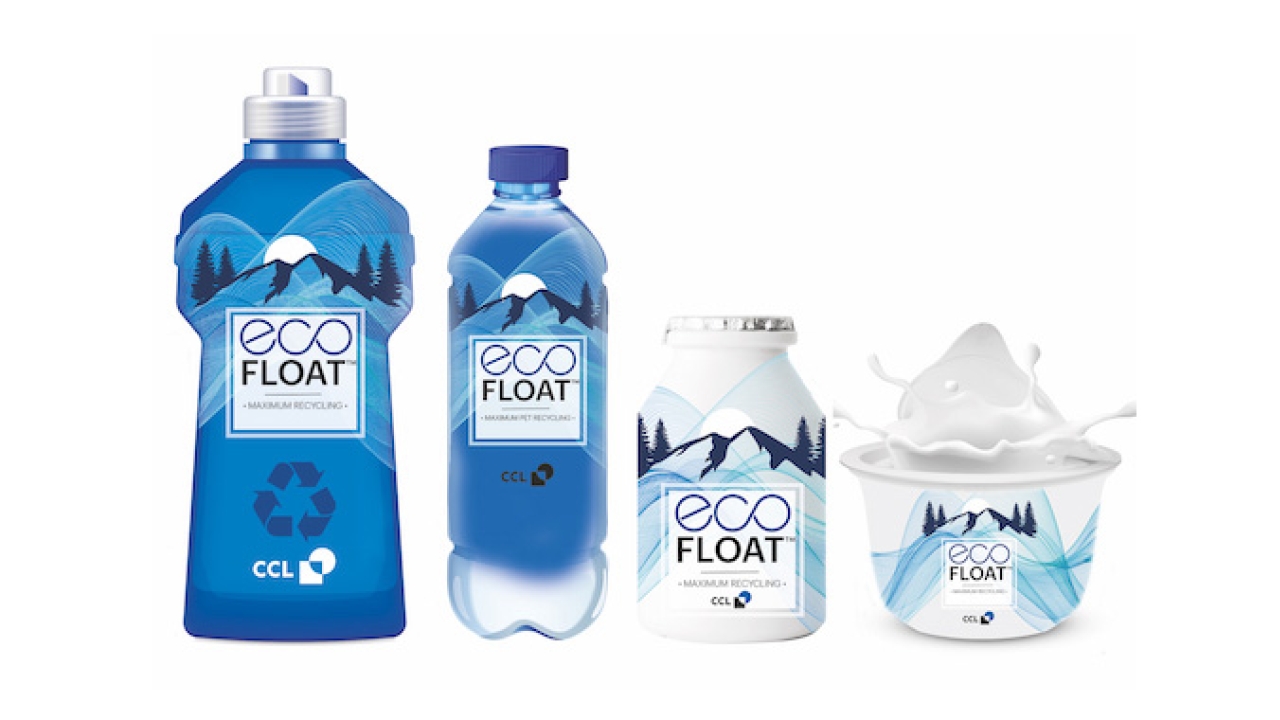CCL’s EcoFloat recognized by APR
CCL has received an APR (Association of Plastic Recyclers) Critical Guidance Recognition for EcoFloat, its sleeve material that helps boost PET recycling by facilitating easy separation of labels from bottles and other types of plastic containers.

CCL developed EcoFloat to meet the new market demands and to help brand owners reach their sustainability and recycling targets to which they have committed themselves. This hybrid polyolefin film facilitates easy separation of labels from PET bottles and other types of plastic containers in the recycling process to enable bottle-to-bottle circularity, an important goal for global consumer goods brand owners.
‘We see EcoFloat as the sustainable decoration solution of the future – for a whole range of packaging in the beverage, dairy, home care, and other industries,’ commented Guenther Birkner, president of Innovia and CCL’s food and beverage business. ‘So, we are proud that this has been verified by receiving the recognition of APR with one of the world’s most widely accepted and comprehensive testing protocols that ensure new packaging products and innovations meet recycling guidelines and do not contaminate the recycling stream.’
EcoFloat has been already endorsed by the European PET Bottle Platform EPBP and certified by a recycling organization Interseroh with its Made for Recycling accreditation.
‘Our investment is part of our commitment to boost plastic recycling and take steps towards a circular economy as stated when we signed the Global Commitment of the New Plastics Economy led by the Ellen MacArthur Foundation last year. In the future, we expect more regulations to set a target for the recycling rate in municipal waste, for example. Reaching these will not be feasible without investing in new technologies for packaging materials that support Design for Recycling. As a floatable, low-density polyolefin film, EcoFloat fulfills the requirements for sleeves as defined in packaging design guidelines,’ concluded Birkner.
Stay up to date
Subscribe to the free Label News newsletter and receive the latest content every week. We'll never share your email address.

